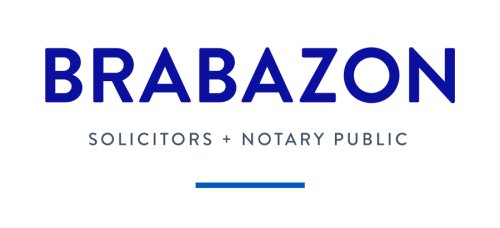Best Social Security Lawyers in Ireland
Share your needs with us, get contacted by law firms.
Free. Takes 2 min.
Or refine your search by selecting a city:
List of the best lawyers in Ireland
About Social Security Law in Ireland
Social Security Law in Ireland, often referred to as Social Welfare, encompasses a range of policies and programs designed to support individuals and families through financial assistance and social services. The system is managed by the Department of Social Protection in Ireland and includes benefits such as unemployment benefits, child benefit, disability allowance, and state pensions. Its primary goal is to provide a safety net that ensures the well-being and financial stability of residents in Ireland.
Why You May Need a Lawyer
While the Social Welfare system is designed to be accessible, there are numerous situations where legal advice may be necessary:
- Denial of Benefits: If your application for social security benefits is denied, a lawyer can help review your case and assist with appeals.
- Complex Applications: Some cases, such as those involving self-employment income or multiple dependents, can be complicated, and professional help can ensure proper documentation and accuracy.
- Disputes: Legal disputes might arise related to overpayment of benefits or eligibility, which may require legal representation to resolve.
- Changes in Circumstances: Significant life changes, like illness, divorce, or the death of a family member, may affect your benefits and necessitate legal guidance.
- Pension Rights: Understanding the entitlements and requirements for state pensions can be complex, especially if your employment history includes periods abroad.
Local Laws Overview
Social Security laws in Ireland are governed by the Social Welfare Acts and various statutory instruments. Key aspects include:
- Eligibility: Criteria vary by benefit, but typically include residency, work history, and financial need.
- Contributions: Many benefits are linked to Pay Related Social Insurance (PRSI) contributions, which employers and employees contribute to through taxation.
- Means Testing: Certain benefits require means testing to determine eligibility, including a review of income and assets.
- Appeals Process: Individuals have the right to appeal decisions regarding their benefits, requiring a formal application to the Social Welfare Appeals Office.
- Legal Framework: The Social Welfare Acts are subject to updates and amendments, reflecting changes in policy and public need.
Frequently Asked Questions
What is the process to apply for Social Welfare benefits?
You can apply online through the MyWelfare platform or submit a paper application via your local Intreo Centre or Social Welfare Office.
How are my benefits affected if I start working?
Your benefits may change depending on the type and amount of income. It's essential to report any changes in your employment status to the Department of Social Protection.
Can non-European citizens receive social welfare benefits in Ireland?
Non-Europeans can qualify for certain benefits if they reside legally in Ireland and meet other eligibility criteria, such as contributory requirements.
What should I do if I disagree with a decision about my benefits?
If you disagree with a decision regarding your benefits, you can file an appeal with the Social Welfare Appeals Office. It's advisable to seek legal advice during this process.
How long does it take to process a Social Welfare benefit application?
Processing times vary depending on the benefit type and caseloads. Generally, applications are processed within a few weeks, but complex cases may take longer.
Are there benefits available for single parents?
Yes, the One-Parent Family Payment and other supports such as the Back to Work Family Dividend are available for single parents who meet the eligibility criteria.
Can I receive Irish social security benefits if I live outside Ireland?
Some benefits, like the Irish State Pension, can be claimed abroad, but eligibility depends on your contribution history and residency rules.
What is the Habitual Residence Condition?
This is a test to determine eligibility for non-contributory benefits based on your presence and life ties with Ireland, ensuring the applicant's habitual residence status.
What other allowances can I get together with unemployment benefits?
Depending on your situation, you might be eligible for other supports like Rent Supplement, Fuel Allowance, and assistance with medical expenses.
Are students eligible to receive social welfare benefits?
Full-time students are generally not eligible for benefits, but exceptions may apply, such as for students with dependents or disabilities.
Additional Resources
For further guidance on Social Security in Ireland, consider these resources:
- Citizens Information: Offers comprehensive details on social welfare programs and application procedures.
- Department of Social Protection: The government body overseeing social welfare, their website provides updates and instructions.
- Social Welfare Appeals Office: Handles appeals from individuals dissatisfied with social welfare decisions.
- Legal Aid Board: Provides legal assistance to those who qualify financially, including in matters of social welfare law.
- FLAC (Free Legal Advice Centres): Offers basic, free legal advice and information to the public.
Next Steps
If you require legal assistance regarding Social Security in Ireland, consider the following steps:
- Contact a legal professional specializing in social welfare law for a consultation on your case.
- Prepare all relevant documentation including benefit application forms, correspondence, and evidence of eligibility.
- Access advice centres, such as FLAC, to receive initial guidance and understand your rights.
- Engage community support groups or NGOs that offer assistance to individuals navigating social security issues.
- File an appeal promptly if disputing a decision, as there are time limits for making appeals.
Lawzana helps you find the best lawyers and law firms in Ireland through a curated and pre-screened list of qualified legal professionals. Our platform offers rankings and detailed profiles of attorneys and law firms, allowing you to compare based on practice areas, including Social Security, experience, and client feedback.
Each profile includes a description of the firm's areas of practice, client reviews, team members and partners, year of establishment, spoken languages, office locations, contact information, social media presence, and any published articles or resources. Most firms on our platform speak English and are experienced in both local and international legal matters.
Get a quote from top-rated law firms in Ireland — quickly, securely, and without unnecessary hassle.
Disclaimer:
The information provided on this page is for general informational purposes only and does not constitute legal advice. While we strive to ensure the accuracy and relevance of the content, legal information may change over time, and interpretations of the law can vary. You should always consult with a qualified legal professional for advice specific to your situation.
We disclaim all liability for actions taken or not taken based on the content of this page. If you believe any information is incorrect or outdated, please contact us, and we will review and update it where appropriate.
Browse social security law firms by city in Ireland
Refine your search by selecting a city.
















